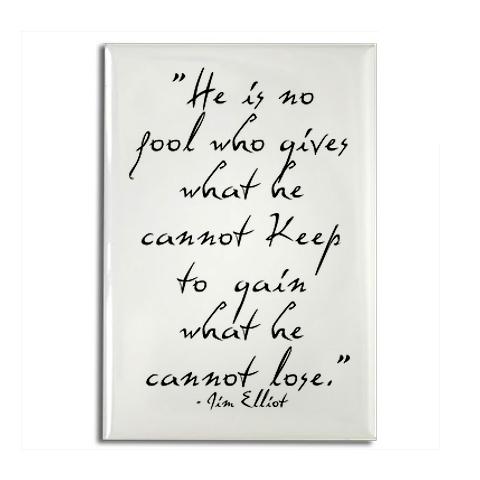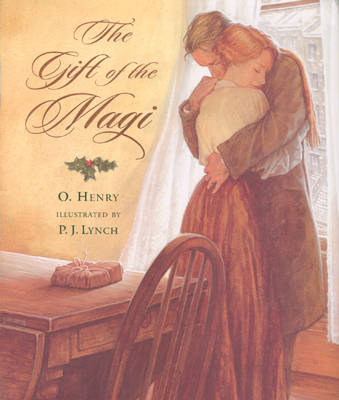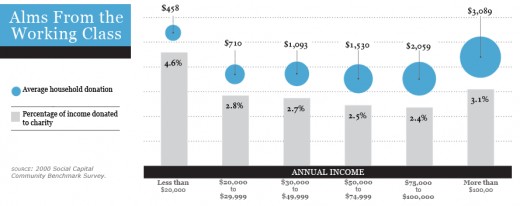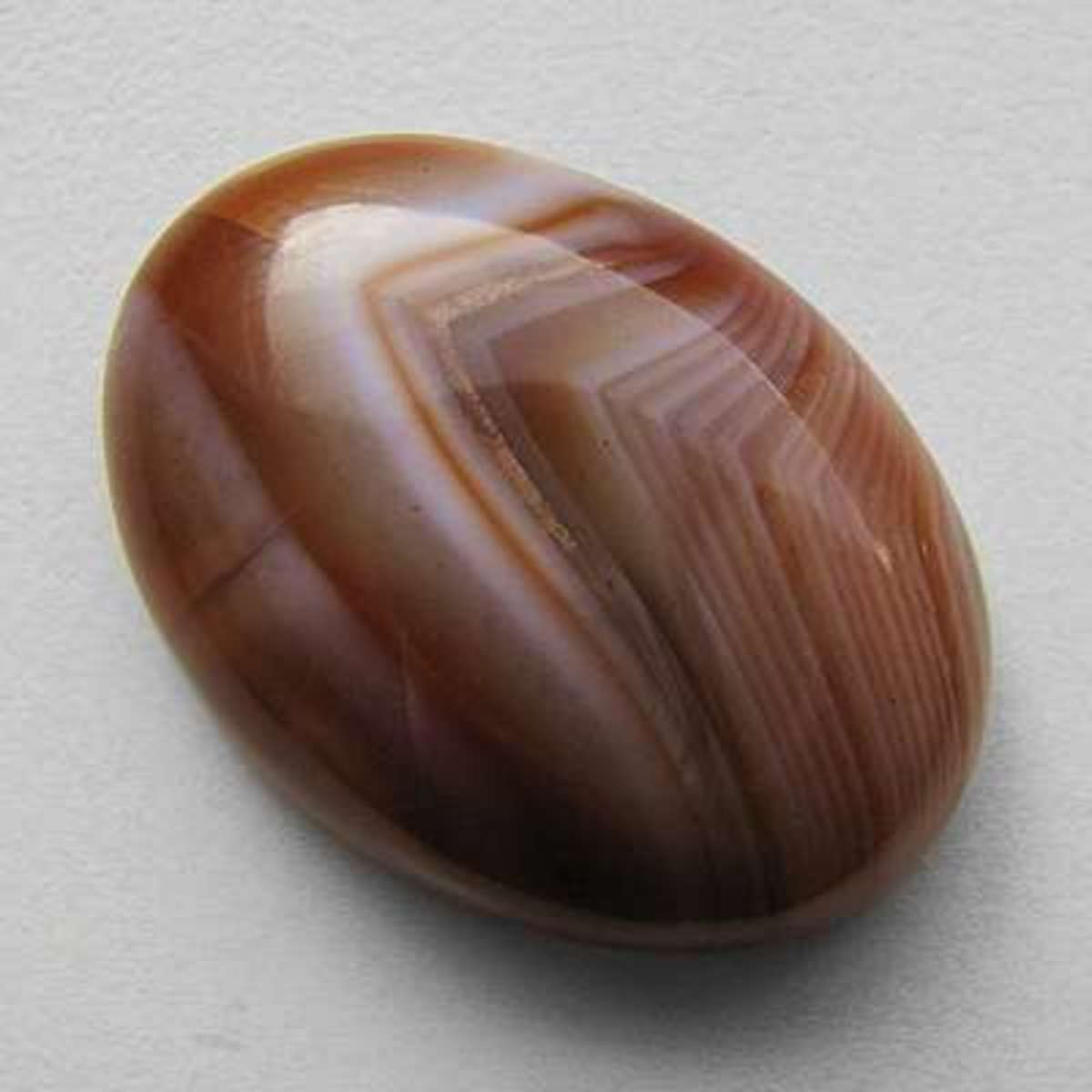Exchanging What You Can't Keep for Something You Can't Lose


A wise woman who was traveling in the mountains found a precious stone in a stream. The next day she met another traveler who was hungry, and the wise woman opened her bag to share her food. The hungry traveler saw the precious stone and asked the woman to give it to him. She did so without hesitation. The traveler left, rejoicing in his good fortune. He knew the stone was worth enough to give him security for a lifetime. But a few days later he came back to return the stone to the wise woman.
I've been thinking, he said, I know how valuable the stone is, but I give it back in the hope that you can give me something even more precious. Give me what you have within you that enabled you to give me the stone. ~ Author Unknown
In a study conducted by Harbaugh, Mayr, and Burghart in 2007, neural activity was recorded while participants decided how to split a hundred dollars between themselves and a local food bank. Whenever they all agreed to give the entire amount to the food bank, an extraordinary thing happened. There was activation in the ventral striatum region of the brain that was identical to the stimuli associated with cocaine or art or attractive faces.
Some things we give almost without thinking. Some gifts cost us nothing. And then there are times when we really ponder what would be the perfect choice. There are times when we lovingly create something with our own hands or times when we save up for a long time before we can afford to buy what we know someone will like.
When the gift is a part of ourselves, our livelihood or a significant portion of our time, the gesture becomes something extraordinary. Not only is the gift treasured by the one to whom we give it, but often, the more it cost us, the deeper the gratification and happiness we feel as well.
Since you get more joy out of giving joy to others, you should put a good deal of thought into the happiness that you are able to give. ~ Eleanor Roosevelt
The grandmother of one of my friend's boys told him she was sending him $500 so that he could buy a game machine or something equally extravagant. Understandably he was excited. He said: "Hey, that is great! I read online about an operation that can fix a child's cleft palate and give them a real smile, I'd like to use the money for that." His mother was proud of her son, but she knew the grandmother wanted him to get something for himself. She looked up the article and told her son: "The procedure only costs $250 so you can still get something for you." He replied: "That's great, that means I can pay for two smiles!"
What causes this awesome boost to character and personal happiness when we practice extraordinary acts of kindness and generosity that cost us more than just a little time or money?
The last article I wrote was a sort of prequel to this one. The title was "I Try to Give Love Away But it Keeps Coming Back." Loving someone who might not deserve it or being kind when you would rather lash out is not only the beginning of a transformation in someone's life but often a transformation of your own life as well.
What happens then if you take that feeling of love and translate it into an action or gift? We all are used to having greeting cards, candy, casual gifts or flowers become the common currency of relationships for the special events in our lives and even though we appreciate it, both giver and receiver are not deeply moved, because it did not take very much to do it.
David, the boy who fought the giant Goliath, after he was king, asked a man what he wanted for land to build a place to offer up thanks to God for the return of the Ark of the Covenant. The land owner, in awe of being asked for something by a king, said he would give it to him. I really like the next thing David said to him and I have thought about it a lot. In fact, that thread of thought is probably why I decided to write this article.
How would you have answered the man? Most people would say "Yay, I don't have to spend my money! Here's a receipt for your tax-deductible donation." I have to be honest with you, a few years ago, I might have said the same thing. But this is what David said, my translation: No, I insist on buying it for the full price. I will not take what is yours and give it as if it were coming from me. I will not give to God a gift that costs me nothing.
This statement demonstrates two outstanding facets of his character. First, he wouldn't take credit for someone else's work or generosity and secondly, he wouldn't give a gift unless it cost him something.
You all know people who take credit for someone else's hard work--politicians who give a brilliant speech they didn't write, the person in the office that never buys the card or gift, but signs the card as if they did and the supervisor who takes the subordinate's ideas and passes them off to the boss as their own.
Then there are people who always give credit to someone for their contribution, never pass another's work or gift as their own and always seem to be able to help you when you need it.
The point is, the worth of my gift is directly related to how much of myself I invest in it and how much it cost me to give it.

One of the most beloved and poignant stories of this kind of giving is The Gift of the Magi,
by O. Henry. Della and Jim love each other very much, but live in a
modest flat with very little money. As Christmas approaches, each of
them wants to buy something meaningful for the other and they settle on
complementing each's single prize possession--Della's luxuriant long
hair and Jim's inherited gold pocket watch. Since they are poor, Jim has
to sell his watch to buy the expensive silver and jeweled combs he
knows will match her marvelous hair while Della arranges to sell her
hair to buy a platinum chain which she thought would be worthy of him
and his watch..
When Della reached home her intoxication gave way a little to prudence and reason. She got out her curling irons and lighted the gas and went to work repairing the ravages made by generosity added to love. Which is always a tremendous task, dear friends--a mammoth task.
O. Henry was in a little cafe in New York in 1910 listening to Christmas carolers and was inspired to write this little story that has become perhaps his most famous work. The reason we are so moved by it is the incredible sacrifice that each of the lovers made for each other. Even though the use of the gifts would not be realized, the purpose of the gifts could not have been achieved more perfectly. Each of them gave up something that would not last for something they could not lose--the realization that they were loved completely by the other who gave up everything for them.

Surveys find out some very interesting things about giving in America.
- Those making over a million per year (7% of population) account for half of all giving with the top 10% giving the most.
- The poorest of our society, those making $20,000 or less, give considerably more of their income to charity than any other segment--about 4.5%.
- Those with middle or upper middle incomes, who give about 3.1%, consistently say they can't afford to give any more than they do.
- Two families bringing in less than $14,000, one on welfare and the other working--On average, the working family tends to donate more than three times as much to charity each year as the welfare family does.
This indicates to me that when giving cost you something it produces more happiness and you are motivated to give more.
I do not believe one can settle how much we ought to give. I am afraid the only safe rule is to give more than we can spare. ~ C. S. Lewis
You make a living by what you get, but you make a life by what you give. ~ Unknown
The Dead Sea is the dead sea, because it continually receives and never gives. ~ Unknown
It's not how much we give but how much love we put into giving. ~ Mother Teresa
The man who will use his skill and constructive imagination to see how much he can give for a dollar, instead of how little he can give for a dollar, is bound to succeed. ~ Henry Ford
To ease another's heartache is to forget one's own. ~ Abraham Lincoln
IF YOU WITNESSED OR KNOW OF AN EXTRAORDINARY GIFT, FEEL FREE TO SHARE IT HERE. WINSOME








